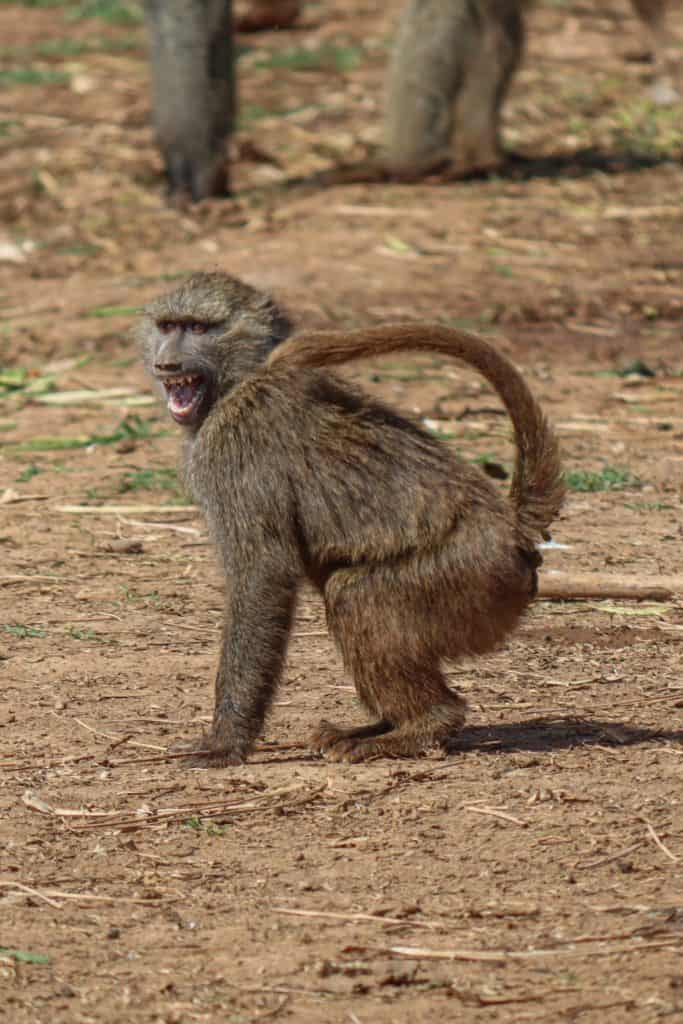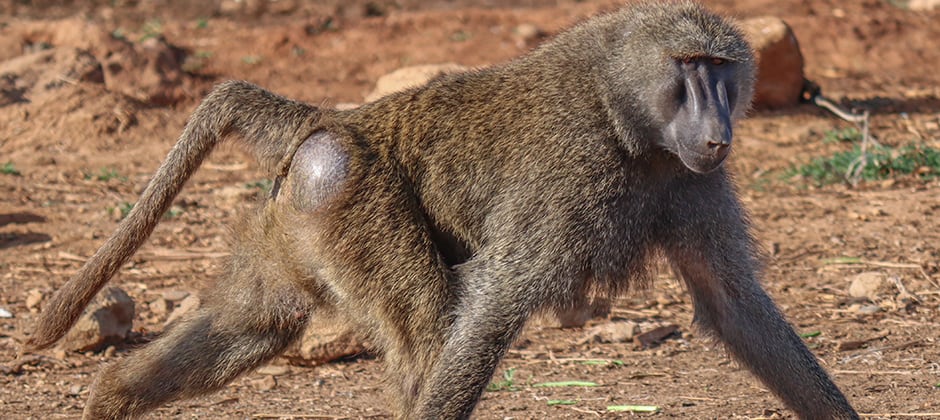Share this article
TWS2020: Baboon conflict in Kenya
Conflicts between baboons and humans surrounding wildlife reserves in Kenya could be improved by creating better compensation programs for the poorest farmers affected by primate rates.
“There’s evidence to say those people really need it and don’t deserve to be excluded [in compensation programs],” said TWS member Mackenzie Goode, who recently completed her master’s program at the University of Florida.
In ongoing work presented on a poster at The Wildlife Society’s virtual 2020 Annual Conference, Goode and her colleagues conducted surveys with 10 local farmers in central Kenya, north of Nairobi.
Olive baboon (Papio anubis) troops can ruin entire crops in a single raid. “It had been increasing for the last couple of years because drought was so bad in the area,” Goode said. Drought can drive the primates out of wildlife reserve in search of water supplies used by farmers and pastoralists in the area.

Solutions to baboon raids include better compensation programs for small farmers.
Credit: Mackenzie Goode
While the Kenya Wildlife Services agency compensates some farmers for the loss of crops, Goode said, they don’t deal with farms that are less than one hectare in size. Changing these laws to protect the poorest, most vulnerable people would alleviate some of the pressure on farmers, she said.
Another potential solution would be for the conservation organizations that run the reserves to buy their produce directly from adjacent farms rather than from bigger farms in other parts of the country. That way, Goode said, those farmers could reap benefits from the conservation of baboons in the preserves — benefits they otherwise don’t feel like they’re getting from baboon conservation.
Goode’s team found that even though the raiding events hadn’t happened a lot during the study period, farmers in the region had strong emotions associated with past events on their farms. Many of these farmers blamed the large conservancy areas nearby for the large number of baboons, but they felt they were powerless to do anything about them due to the perceived power of the international organizations often associated with the preserves.
“These small-scale famers thought they had very little power, and these conservancies had a lot of power over them,” Goode said.
Her research found that farmers had an acute fear of baboon raids, with the trauma from even one past conflict creating negative attitudes toward baboons and other wildlife like African elephants (Loxodonta Spp.) for years to come. Farmers also expressed concerns about increasing droughts, which can cause conflicts with Maasai pastoralists over limited water supplies in addition to the damages brought on by baboons.
Despite their concerns, Goode found, farmers did appreciate the ecological value of wildlife.
“Even though most of the farmers did not see wildlife as having value to them directly, they all supported conservation of wildlife for future generations,” she said. Their attitude was something like, “We like wildlife we just don’t like it near us,” she said.
This research was presented at TWS’ 2020 Virtual Conference. Conference attendees can continue to visit the virtual conference and review Goode’s poster for six months following the live event. Click here to learn about how to take part in upcoming conferences.
Header Image: Olive baboon troops can destroy an entire crop in their raids. Credit: Mackenzie Goode








